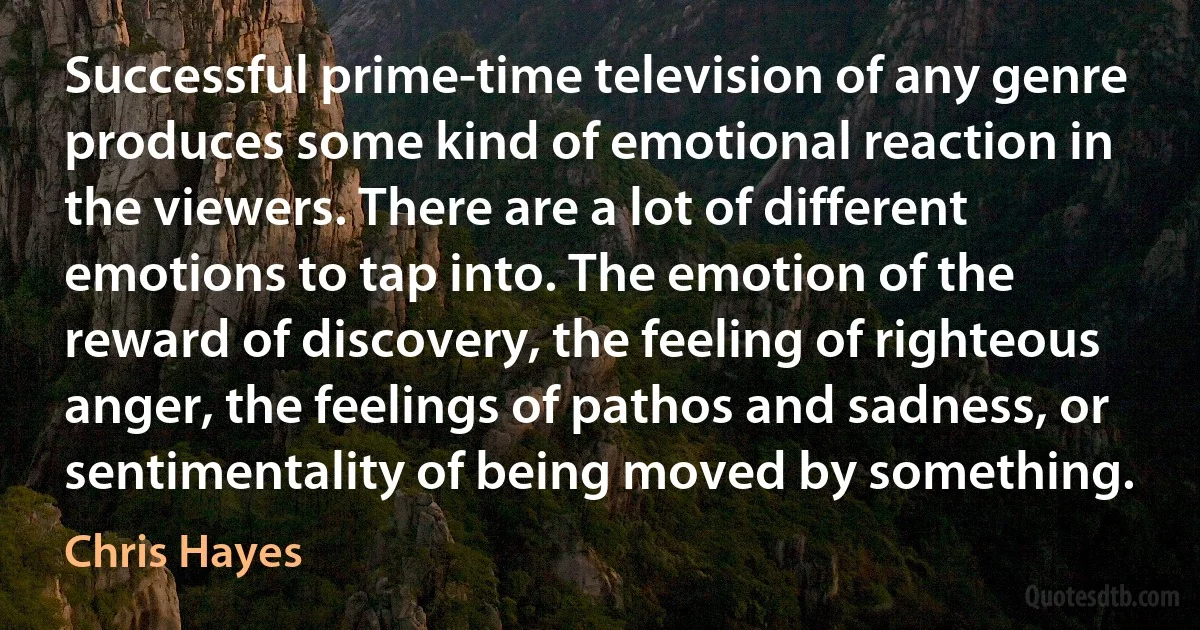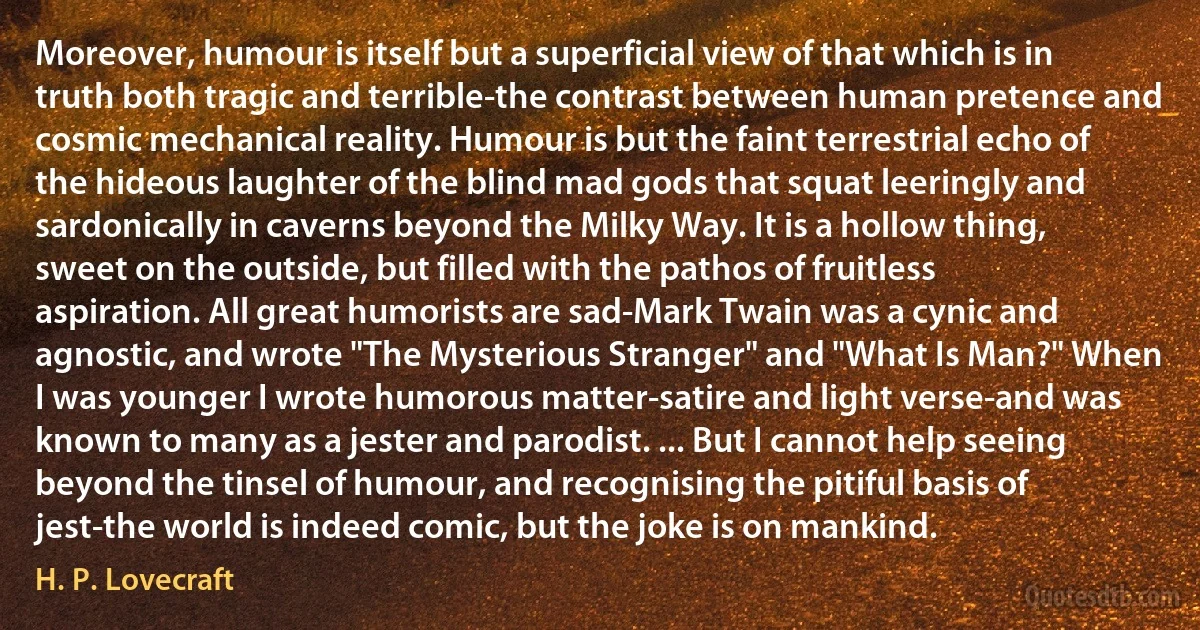Pathos Quotes
A wonderful physical tie binds the parents to the children; and - by some sad, strange irony - it does not bind us children to our parents. For if it did, if we could answer their love not with gratitude but with equal love, life would lose much of its pathos and much of its squalor, and we might be wonderfully happy.

E. M. Forster
The auspices for philosophy are bad if, when proceeding ostensibly on the investigation of truth, we start saying farewell to all uprightness, honesty and sincerity, and are intent only on passing ourselves off for what we are not. We then assume, like those three sophists [Fichte, Schelling and Hegel], first a false pathos, then an affected and lofty earnestness, then an air of infinite superiority, in order to impose where we despair of ever being able to convince.

Arthur Schopenhauer
[Most people] are neither extraordinarily silly, nor extraordinarily wicked, nor extraordinarily wise; their eyes are neither deep and liquid with sentiment, nor sparkling with suppressed witticisms; they have probably had no hairbreadth escapes or thrilling adventures; their brains are certainly not pregnant with genius, and their passions have not manifested themselves at all after the fashion of a volcano. ... Depend upon it, you would gain unspeakably if you would learn with me to see some of the poetry and the pathos, the tragedy and the comedy, lying in the experience of a human soul that looks out through dull grey eyes, and that speaks in a voice of quite ordinary tones.

George Eliot
I've read Rudin before, but that was fifteen years ago in university. Rereading it now, lying all bandaged up, sipping my whiskey in bed in the afternoon, I felt new sympathy for the protagonist Rudin. I almost never identify with anybody in Dostoyevsky, but the characters in Turgenev's old-fashioned novels are such victims of circumstance, I jump right in. I have a thing about losers. Flaws in oneself open you up to others flaws. Not that Dostoyevsky's characters don't generate pathos, but they're flawed in a way that don't come across as faults.

Haruki Murakami
What Elizabethan playwrights learned from the Greek classics was not theories of insanity, but dramatic practice - that is, madness is a dandy theatrical element. It focuses the audience's attention and increases suspense, since you never know what a mad person may get up to next; and Shakespeare himself makes use of it in many forms. In King Lear, there's a scene in which one man pretending to be mad, another who has really gone mad, and a third who has probably always been a little addled, are brought together for purposes of comparison, irony, pathos, and tour de force acting. In Hamlet, there are two variations - Hamlet himself, who assumes madness, and Ophelia, who really does go winsomely bonkers. In MacBeth, it's Lady MacBeth who snaps.

Margaret Atwood
When it occurs to a man that nature does not regard him as important, and that she feels she would not maim the universe by disposing of him, he at first wishes to throw bricks at the temple, and he hates deeply the fact that there are no bricks and no temples. Any visible expression of nature would surely be pelleted with his jeers. Then, if there be no tangible thing to hoot he feels, perhaps, the desire to confront a personification and indulge in pleas, bowed to one knee, and with hands supplicant, saying: "Yes, but I love myself." A high cold star on a winter's night is the word he feels that she says to him. Thereafter he knows the pathos of his situation.

Stephen Crane
How do things stand, now, if the subject contains a large element of pathos?... Consider such an interesting subject as the scene taking place around the bed of a dying woman, for example; seize and render that ensemble by photography, if that is possible [photography was a very recent invention in Paris ca. 1853, a. o. by the photographer Nadar ]: it will be falsified in a thousand ways. The reason is that, according to the degree of your imagination, the subject will appear to you more or less beautiful, you will be more or less the poet in that scene in which you are an actor; you see only what is interesting, whereas the instrument puts in everything.

Eugène Delacroix



